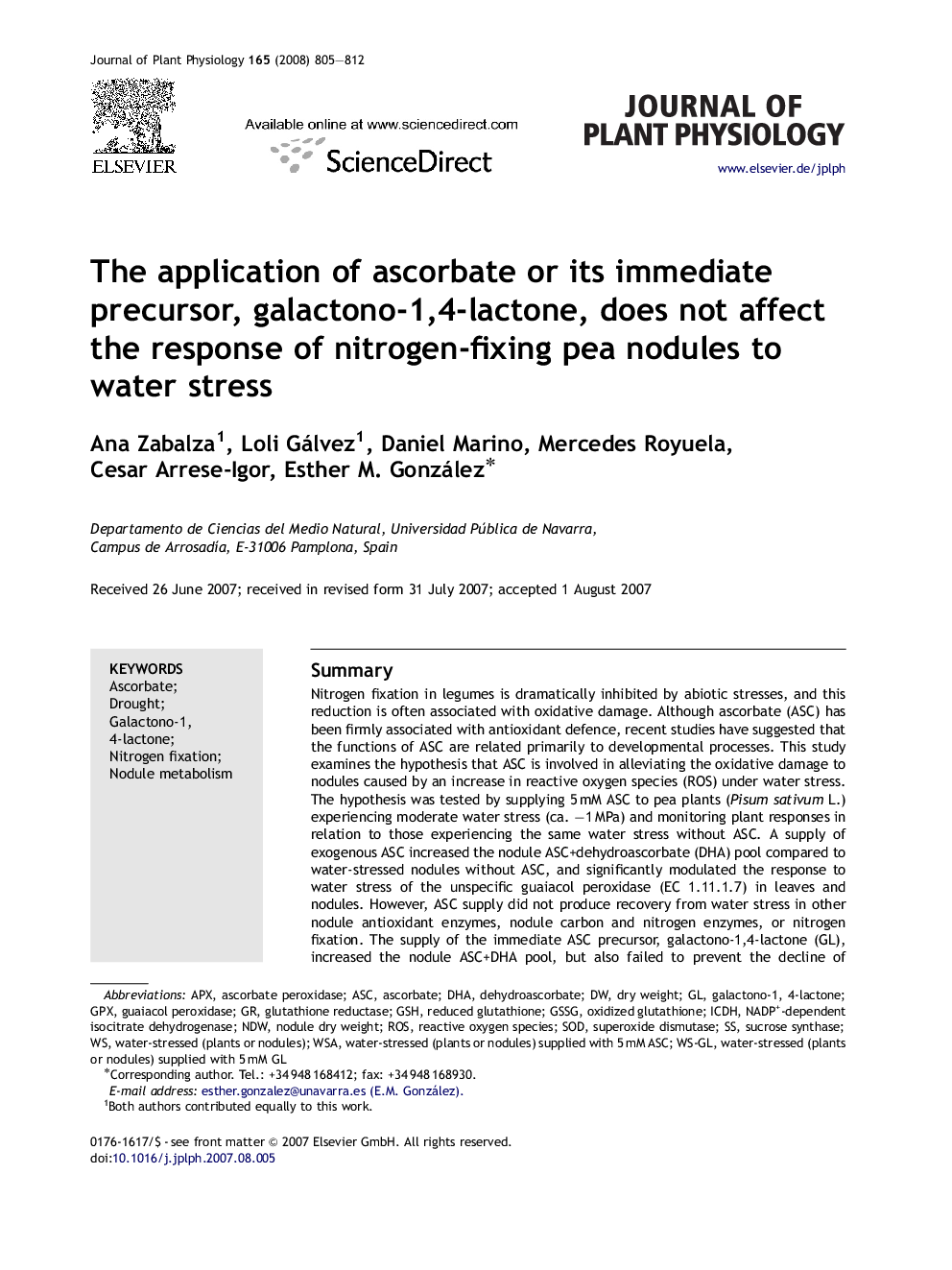| Article ID | Journal | Published Year | Pages | File Type |
|---|---|---|---|---|
| 2057254 | Journal of Plant Physiology | 2008 | 8 Pages |
SummaryNitrogen fixation in legumes is dramatically inhibited by abiotic stresses, and this reduction is often associated with oxidative damage. Although ascorbate (ASC) has been firmly associated with antioxidant defence, recent studies have suggested that the functions of ASC are related primarily to developmental processes. This study examines the hypothesis that ASC is involved in alleviating the oxidative damage to nodules caused by an increase in reactive oxygen species (ROS) under water stress. The hypothesis was tested by supplying 5 mM ASC to pea plants (Pisum sativum L.) experiencing moderate water stress (ca. −1 MPa) and monitoring plant responses in relation to those experiencing the same water stress without ASC. A supply of exogenous ASC increased the nodule ASC+dehydroascorbate (DHA) pool compared to water-stressed nodules without ASC, and significantly modulated the response to water stress of the unspecific guaiacol peroxidase (EC 1.11.1.7) in leaves and nodules. However, ASC supply did not produce recovery from water stress in other nodule antioxidant enzymes, nodule carbon and nitrogen enzymes, or nitrogen fixation. The supply of the immediate ASC precursor, galactono-1,4-lactone (GL), increased the nodule ASC+DHA pool, but also failed to prevent the decline of nitrogen fixation and the reduction of carbon flux in nodules. These results suggest that ASC has a limited role in preventing the negative effects of water stress on nodule metabolism and nitrogen fixation.
